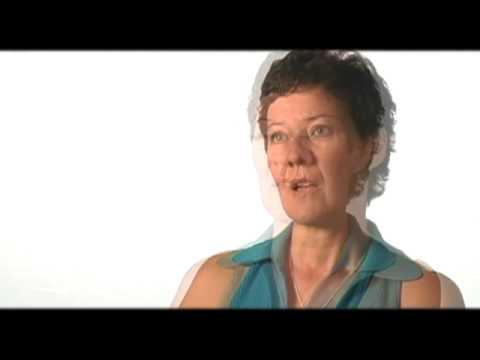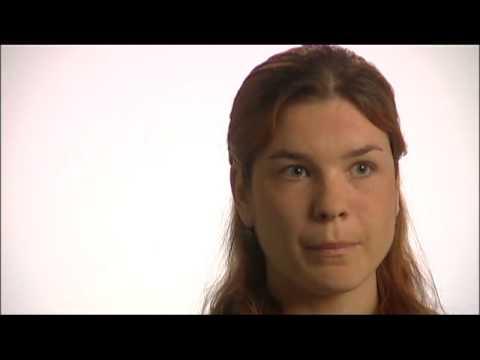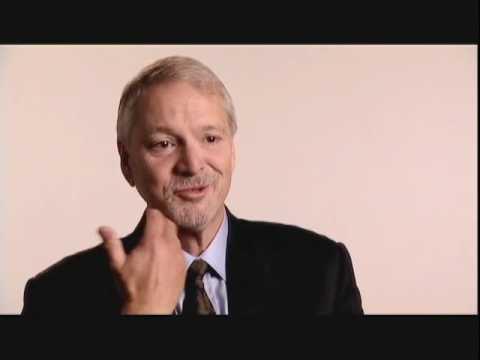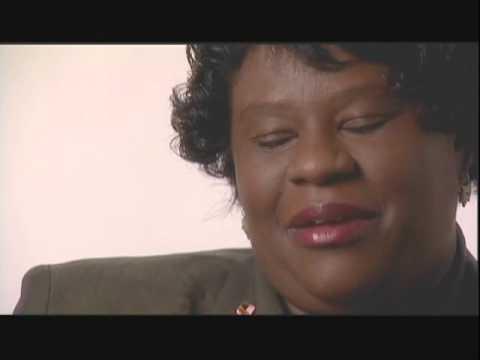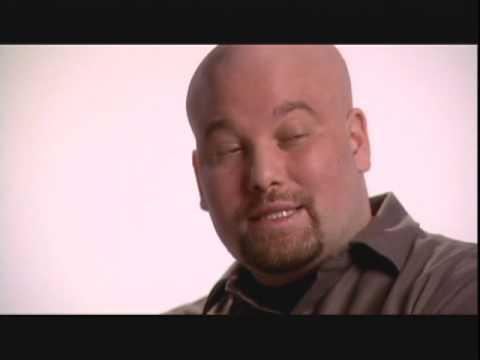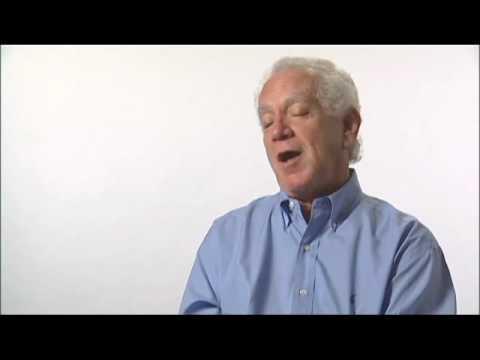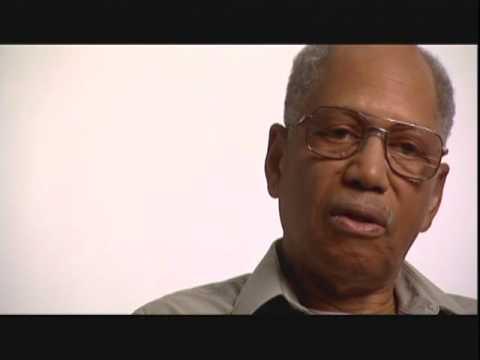Navita G.
I became a survivor when I was diagnosed with cervical cancer in 1999.
The diagnosis is a life changing experience. It was a total surprise to me. I went in for a routine pap smear, but it had been a while since I’d had one. The gynecologist said, “Ms. Gunter, we think we’ve found something. We believe you have Stage 2 cervical cancer.” My world went out of focus for a minute. He set up an appointment with the oncologist. My oncologist sat me down, had my folder in front of her and said, “Ms. Gunter, we’re going to take very good care of you. The cancer has not gotten too far. We got it early, which is a very good prognosis for you, and now we’re going to treat it very aggressively. We’re going to do 28 days of radiation, and we’re going to do a semi-new procedure called a cesium implant.” I would go into the hospital twice and then be flat on my back for three days with these radioisotopes near the cancerous lesion. She did not want to do a hysterectomy, because I’m also a diabetic.
Changes to my thyroid had to do with what I went through with the radiation and cesium implant. I already had a thyroid problem. I had a slight goiter in my throat, but it wasn’t the type that bulges out. You really had to be looking to see it. But it was not very noticeable until after I had finished all my radiation. I would say three years. It was about a few months ago that my internist, called his attention to it. I said, “What about this goiter?” He looked up and was startled, “What goiter? I didn’t know you had a goiter.” “Yeah, here it is.” He said, “That’s pretty big.” When it was first diagnosed by another doctor, it wasn’t that much of a concern, because they didn’t think it was really that big. It wasn’t growing. But apparently something must have jump started it. I assume the only other different thing I’d had done to my body, other than some medications for diabetes, was that radiation and those cesium implants. My internist went crazy and said, “We need to have this looked at.” I had to go for more radiation. They did an ultrasound on me. The doctor told me, “It looks like you have a goiter the size of a football in your body, but it’s growing downward. That’s why you or no one else has paid that much attention to it. I would like to recommend surgery, because it’s so huge. It’s not giving you too much trouble now, but in the future, you could start to have breathing problems.”
I think the location of my particular cancer and the treatments possibly did some damage to the bowel movements. The doctor did say that I possibly would have some problems with that, because of the radiation. Basically, what triggers it is when I eat. A lot of times, I try to gauge when I eat better and that I’m near a bathroom. I try not to be caught out on the road, so to speak. You become an expert in mapping out potential public bathrooms. It becomes essential for your well-being, so that you will not have an accident. You also become adept in your body talking to you. After I eat, ten or thirty minutes later, I’m gonna have to go. Therefore, you plan your eating so that you’re gonna sit there for a while after you finish.
Your intimacy is definitely affected. It’s like when a woman gets a hysterectomy, or even when a woman gets breast cancer and they have to have a breast removed. It affects your intimacy, because that’s what makes a woman. It’s hard-hitting when it hits what I call the cradle of life, which is the uterus and all the reproductive areas with a woman. Luckily, I’m not a woman that wants to have children anymore.
With having the radiation and the cesium, it will cause my cervix to close up if I do not have continual sex. But it kills the desire. It’s hard for me to put how it changes your thoughts about being intimate with a man. It does hurt. It can be difficult for a woman to admit that and also to even tell a man about it. I found it difficult, because I found that they don’t understand what I’m talking about. They’re not sure. “What do you mean?” “It just hurts. It’s uncomfortable to have it.” Physically and emotionally, I withdraw from it. I didn’t want to have anything to do with it. Now, I’m having another complication because I made that choice. My cervix is closing up. I can’t put the culprit all on cervical cancer. But because of my diabetes and some other medication, that kills it too. If you don’t have the desire, it’s just no fun doing it. I’m now talking to doctors about it. At first, I was very closed about it. The only way that’s going to help me is that I start talking about it now and narrowing down the possibility. Was it the radiation? Is this other thing another part of it? What is happening that my libido has gone down?
When I was reading some of the material about the radiation, it can cause early menopause. It’s still a mystery, because it can start as early as in a woman’s 30’s. As late as 60’s, you might start it. Another thing that can be very confusing to women is that when we go through menstruation, we drive men crazy with these hormone changes. You’d be like, “By God! She has turned into something that I did not marry!” That can be very confusing to us, when the menopausal stage comes in, because that’s another hormonal stage that messes with our minds. Not only with our bodies. It can be, like, “Which is this? Is this menopause or is this other thing that I’m dealing with?”
While I was going through this, I had my daughter, friends, family, and God. Later on, I discovered Gilda’s Club, which is a support group for people who have had cancer or are going through cancer. They helped me out a lot. They gave me a place to talk to other people like me, to let me know I wasn’t alone with fighting this thing that invaded my body and caused an even more life-changing happening in my life. More than the diabetes. They said diabetes is life-changing. It is, but that cancer word got me.
The health insurance that I was involved with, while I was still with the State of Tennessee, did very well. In fact, it was 100% paying for my cancer treatment. I did not have any problems then. Now, I’m going to run into some problems. I made the decision to leave the state and come to an organization that I helped create, called The Cervical Cancer Coalition of Tennessee, so that I may better help and serve women out here that are either getting ready to go through what I did or have gone through it. I’m three-and-a-half, almost four years out. A lot of insurance companies don’t want to touch me, because of that. Because of the diabetes, they don’t want to touch me. I’m finding that with some research, you can find a way around it.
I wanted to let the ladies know that there is an organization out here. Right now, it is basically for the residents of the state of Tennessee. But I’m sure a lot of Tennessee residents will be looking at the website. The Cervical Cancer Coalition of Tennessee is here. We’re here to help you with your questions and concerns. We’re a resource if you don’t know where to go to get help or to get answers to your questions. Perhaps we can help you. Being a survivor, I can give you some insight on how it is, life after cancer.
Survivorship means a lot. It means that I have come through something, and I’m still here. I’m still functioning. I’m still physically in the world. I’m still talking and walking. I have another chance to make a difference, not only in my life, but perhaps in other people’s lives. I do have a nurturing nature, so I can maximize that nature and help others. I feel that I can get my life back together. It is different, but that’s what life is all about, is change. As you get older, dealing with old age and dealing with other things, it’s just another phase. At least, hopefully, I can be a resource to others that are not sure what they’re going to face.
I am Navita Gunter, and I am a five-year cervical cancer survivor.
